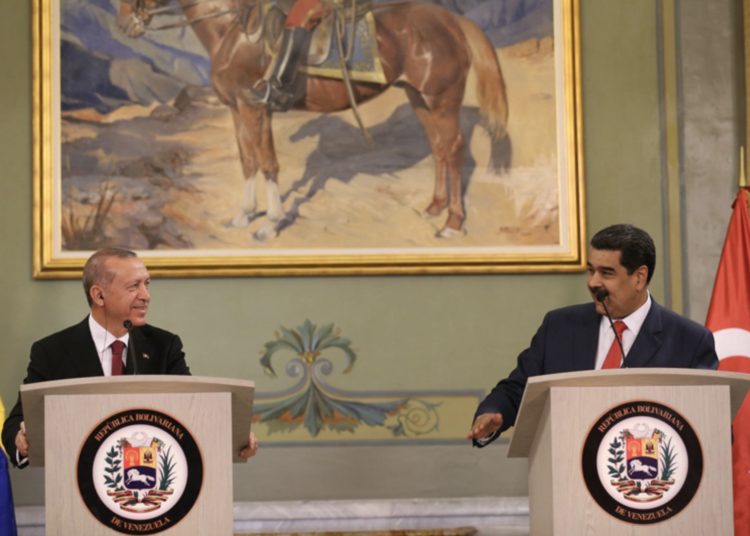Abdullah Bozkurt
An agreement establishing Turkey’s ties with the Organization of Eastern Caribbean States (OECS) was criticized by the opposition in Turkey as vague and open to abuse for tax evasion, Nordic Monitor has learned.
According to the text of the agreement, a copy of which was obtained by Nordic Monitor, a clause in the Memorandum of Understanding (MoU) stated that “any other modality agreed upon by the Parties” can be utilized in the cooperation between Turkey and the OECS. The Turkish opposition found the wording so vague and broad that it could be exploited for purposes other than what was originally intended, lodging an objection to it.
Article 3 of the MoU refers to the development of technical cooperation and specifies five modalities for such development: the exchange of experts, the exchange of documents and information, the training of human resources, joint scientific and technological development projects and the organization of seminars and conferences. However, at the insistence of the Turkish side, the wording “any other modality agreed upon by the Parties” was included at the end, which led to concern on the part of opposition lawmakers in the Turkish Parliament. Any further legislative review of the MOU after its approval by parliament will be prevented, but the government will have the ability to add other modalities not mentioned in the agreement when engaging with the OECS.

Responding to criticism, Deputy Foreign Minister Yavuz Selim Kiran downplayed the significance of the vague wording in the text, saying it was related to technical matters. The opposition raised questions about whether the MoU could be used as a loophole for tax evasion. Turkish President Recep Tayyip Erdoğan, his family members and his business and political associates have been accused of using offshore banking and financial services to hide their wealth.
The Islamist Justice and Development Party (AKP) government has been expanding its presence in Latin America and the Caribbean, investing in minority Muslim groups and promoting Erdoğan’s brand of extremist political Islam. The Turkish government has closely allied itself with the regime of Venezuelan President Nicolás Maduro and has tapped it to develop networks in Latin America. Turkey has increased its diplomatic presence in the region from six countries in 2002 to 17 today.
The MoU was offered by the Erdoğan government as a way to woo Caribbean countries when Ankara found that an institutional cooperation scheme with the OECS was not possible. The Erdoğan government hopes the MoU will allow institutions such as the Turkish Development and Cooperation Agency (TIKA) to be given a broader mandate to operate in the Caribbean.
The areas of cooperation are listed as disaster management, development of small and medium-sized enterprises (SMEs), tourism, health, agriculture, environment, youth and culture.

The MoU also states that Turkey can make any contribution it deems appropriate to the OECS and that the two sides will consult on projects that would benefit from voluntary financial contributions. Turkey also considers OECS members to be potential votes in international organizations and hopes to enlist their help during voting, especially at the United Nations. Turkish Foreign Ministry officials were asked how much money Turkey would be donating to the OECS, but the officials dodged the question during proceedings at the parliamentary Foreign Relations Commission on July 4, 2019.
According to the MoU, the Erdoğan government may use private sector institutions and nongovernmental organizations to implement the projects, which means that Islamist groups supportive of Erdoğan can be incorporated into the cooperative schemes. The agreement also states that the parties shall carry out the necessary procedures before their competent authorities in order to obtain all necessary facilities for the entry, stay and departure of participants who are officially involved in the projects of cooperation.
Any difference or disputes between the parties regarding the interpretation or application of the provisions of the MoU will be resolved through diplomatic channels, not by a third party or through international arbitration mechanisms.
The agreement has no expiration date and will remain valid for an indefinite period.
The OECS has seven full members: Antigua and Barbuda, the Commonwealth of Dominica, Grenada, Montserrat, St. Kitts and Nevis, St. Lucia, and St. Vincent and the Grenadines. The British Virgin Islands, Anguilla, Martinique and Guadeloupe are associate members.
The agreement was signed by the Turkish ambassador to Cuba on June 4, 2016 on the sidelines of the Association of Caribbean States (ACS-AEC) summit in Havana.
The full text of the agreement is posted below:












